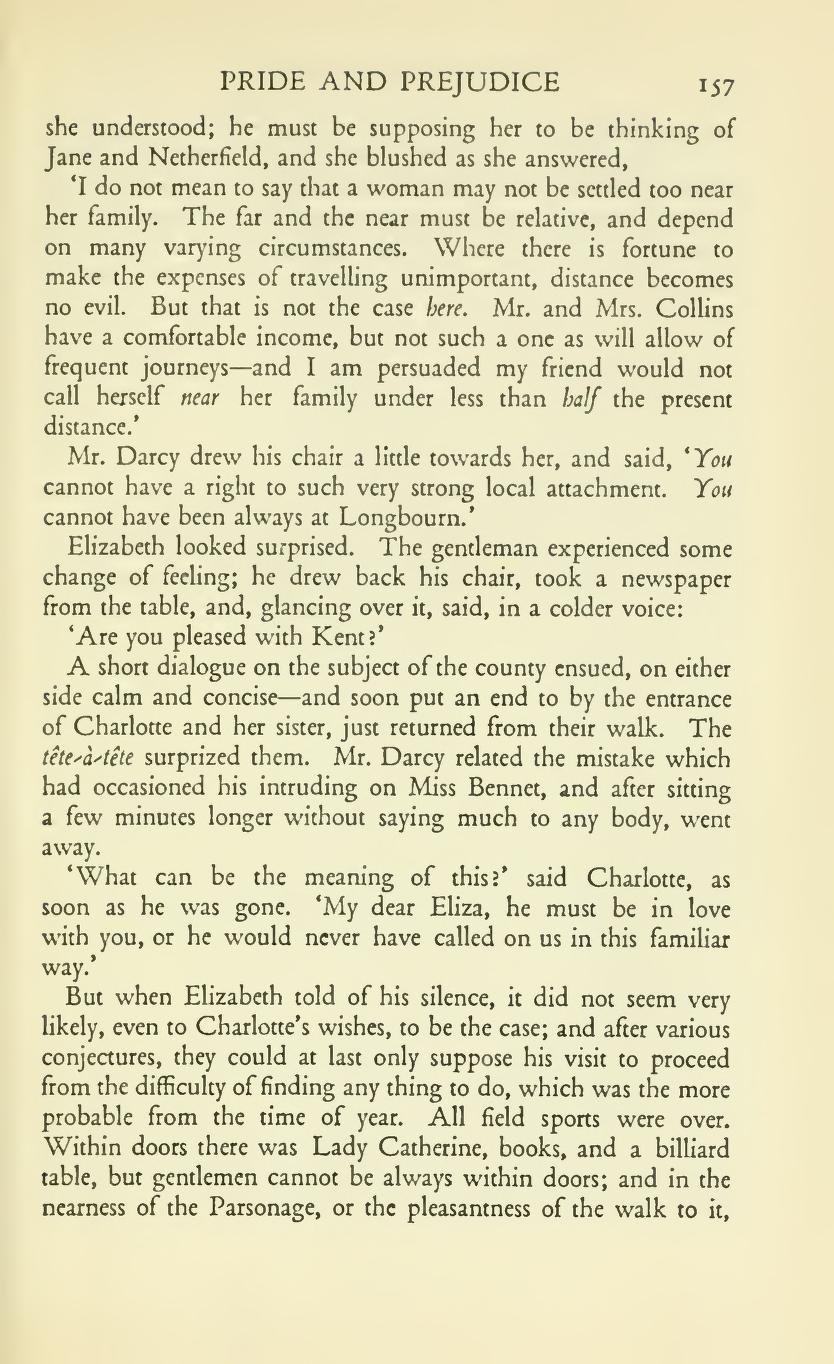 ............prev.....................next
............prev.....................next{{prxprp157.jpg}} || PRIDE AND PREJUDICE 157 ||
she understood; he must be supposing her to be thinking of
Jane and Netherfleld, and she blushed as she answered,
'I do not mean to say that a woman may not be settled too near
her family. The far and the near must be relative, and depend
on many varying circumstances. Where there is fortune to
make the expenses of travelling unimportant, distance becomes
no evil. But that is not the case here. Mr. and Mrs. Collins
have a comfortable income, but not such a one as will allow of
frequent journeys -- and I am persuaded my friend would not
call herself near her family under less than half the present
distance.'
Mr. Darcy drew his chair a little towards her, and said, 'You
cannot have a right to such very strong local attachment. You
cannot have been always at Longboum.'
Elizabeth looked surprised. The gentleman experienced some
change of feeling; he drew back his chair, took a newspaper
from the table, and, glancing over it, said, in a colder voice:
'Are you pleased with Kent;'
A short dialogue on the subject of the county ensued, on either
side calm and concise -- and soon put an end to by the entrance
of Charlotte and her sister, just returned from their walk. The
tete-a-tete surprized them. Mr. Darcy related the mistake which
had occasioned his intruding on Miss Bennet, and after sitting
a few minutes longer without saying much to any body, went
away.
'What can be the meaning of this;' said Charlotte, as
soon as he was gone. 'My dear Eliza, he must be in love
with you, or he would never have called on us in this familiar
way.'
But when Elizabeth told of his silence, it did not seem very
likely, even to Charlotte's wishes, to be the case; and after various
conjectures, they could at last only suppose his visit to proceed
from the difficulty of finding any thing to do, which was the more
probable from the time of year. All field sports were over.
Within doors there was Lady Catherine, books, and a billiard
table, but gentlemen cannot be always within doors; and in the
nearness of the Parsonage, or the pleasantness of the walk to it,
[[157]]